If you're ready to attract premium clients, you might be wondering...
where are the clients who invest $10,000 or more to get coaching?
And what do I say to get them to see the value?
Dear future million-dollar coach,
My name is LaTisha Styles and over the past 10+ years, I’ve used the internet to grow a successful business, personal brand, generate a million dollars, and help my clients create 6 and 7 figure businesses. Using my strategies, clients are able to get results anywhere from booking their first coaching clients to generating $150,000 in 6 days, and even earning over $1,000,000 with the “introvert-friendly” sales systems I’ve developed.
I've helped clients double their rates, book and close premium clients, and even sell their very first five-figure coaching offer.
On the surface, it might look like I did this almost overnight. But for years I sold my services for just a fraction of what they were truly worth. I felt happy when I saw clients getting results, but my excitement was overshadowed by the fact that I felt underpaid and overworked.
The turning point, when I grew confident enough to increase my rates from $800 to $10,000, felt like it took forever.

I was so scared to raise my rates. I asked myself...
I didn't have the confidence I needed to stand in my power as a transformational coach. But what I lacked in confidence, I made up for with determination.
I decided that I was going to learn what made people buy. And in particular, I wanted to learn what made people buy high-priced items.
What I learned shocked me.
And it was all because of a pair of boots.
Boots.
Here's what happened...
It was 2017 and YSL sent a pair of $10,000 boots down the runway. And celebrities were scrambling to buy a pair!
It wasn't the price of the coaching package! It was the person I was selling that coaching package to!
I decided to test out my theory. That's when I pitched and closed my first high-ticket coaching client at $2,000. Then I reinvested and ran a small ad to speak to this new type of client. I tested the wording with a new sales presentation and started getting more calls booked.

The next client I pitched and closed at $3,333. I started to test out different price points for my coaching and I still remember the first day I sold a $12,000 coaching package.
Suddenly Booking High-Ticket Clients Became Easy, And Fun!
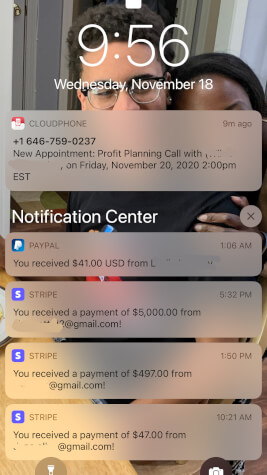
Since then, I continued selling my group coaching and 1:1 offers for thousands.
I started to feel different.
Suddenly, I stopped settling for less. And I started asking for (and receiving!) more in all areas of my life.
The high-ticket clients were different too.
They showed up ready to work and they got amazing results.
Several of those clients went on to earn six-figures in their own coaching business after learning to position themselves as a high-ticket coach.
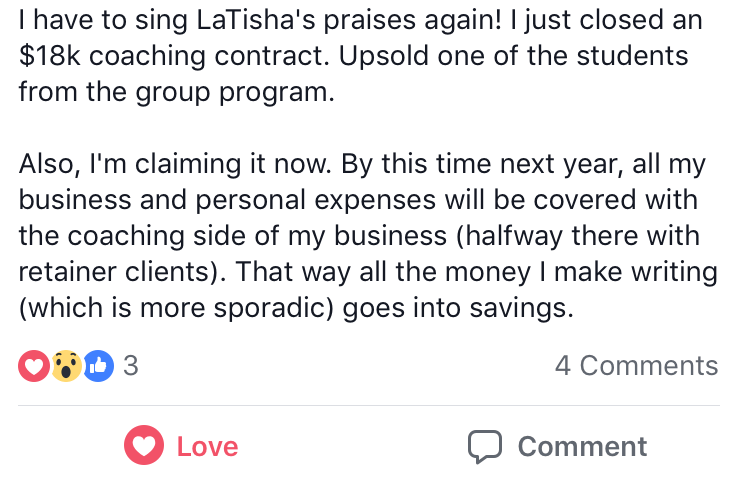
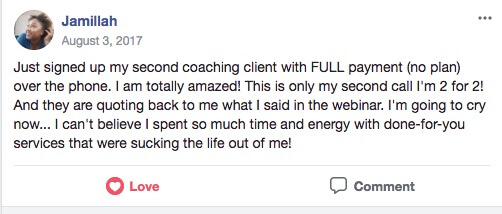

Once you know how to close sales of your high-ticket offer, it only takes a handful of clients to create five-figure months again
and again
and again...
And before you know it, you'll have a million dollar coaching business. However, I realize that you may not have a high-ticket offer, or if you do, you might not be confident selling it.
That's why I've created the Package & Profit training.
In this Package and Profit Training, I will show you exactly how to...
Create Your
High Ticket Coaching Offer
...even if you've never sold one before.
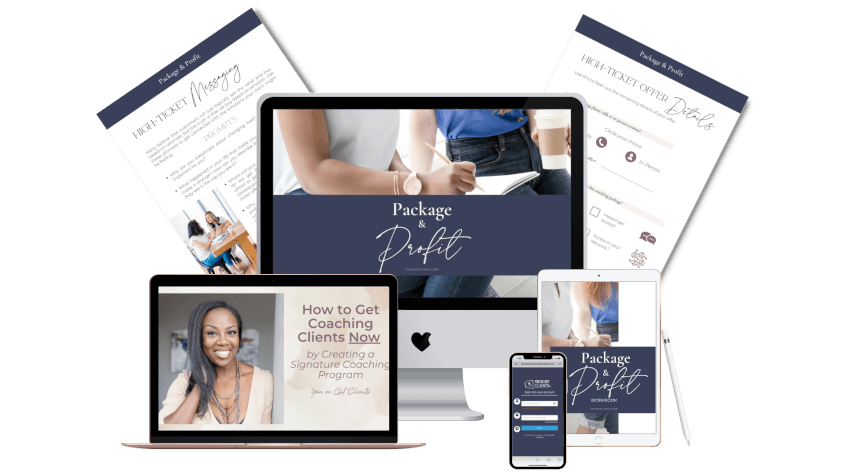
Package & Profit
What's Inside...
Video 1:
What Really Sells High-Ticket? (getting into the mind of your buyer)
In this video you will start with buyer psychology and what really triggers a client to purchase a high-ticket offer.
Selling high-ticket goes beyond just increasing your price point. If you really want to double your rates then you must understand why your ideal client would even be willing to spend.
Video 2:
Pricing Your High-Ticket Offer (how much is too much?)
In this video you will discover the secret to pricing high-ticket. If you are wondering what pricing is considered high-ticket then this is the video that will answer that question.
You'll also discover how to choose the price for your own group coaching or 1:1 coaching program.
Video 3:
Marketing to High-Ticket Clients (and avoiding broke clients)
In this video you will learn how to structure your marketing so it only speaks to high-ticket clients. If you've already been selling high-ticket coaching offers, but you haven't gotten much traction, then it might not be your price but rather your audience.
You'll discover how to redirect your brand image and when it's appropriate to market your high-ticket offer to clients who previously invested at a lower level.
Video 4:
Secrets to Sell High-Ticket in a Single Conversation
In this video you will discover the sales strategies to sell a high-ticket program in just one phone call.
This video also covers the sales call script and strategy for getting a payment immediately over the phone.
If you don't have a high-ticket offer, or know how to sell your high-ticket offer, then you don't want to leave without this on-demand training.
Get These Bonuses When You Invest Today

High Ticket Offer Worksheets
Use the worksheets to plan out the details of your offer, write your sales script, and create the wording necessary to speak to the right client and get them to say yes without delay!
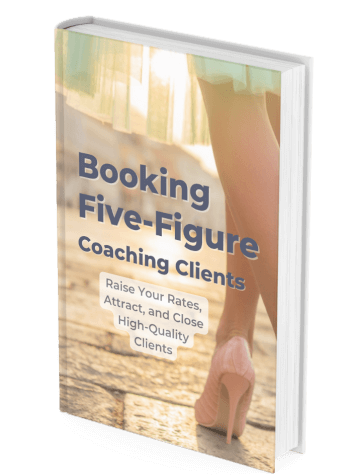
Booking 5-Figure Coaching Clients
In this training you'll learn how to increase your rates by double or more, then attract and close high-quality coaching clients who are ready and excited to invest in your services even when you are charging $10k or more .
What's the Catch?
Q: If you're going to teach me how to sell package and sell a high-ticket offer, why aren't I paying a high ticket price for this program?
A: Great question! The first reason is that this is a self-paced on-demand video program. Because I have already created it and I don't have to teach it live, I don't have to charge for my time.
The second reason is that if you don't already have a high-ticket package, you won't be able to immediately earn back a high-ticket investment.
My goal is to help you earn 8-10 times your investment with any program, live or self-paced. In order to help those without a high-ticket program, I've priced this at a rate that fit into my goal.
Just one high-ticket client at the minimum of $1,500 is more than a 10 times return on your investment.
*This special pricing will not last. Grab your copy now before the price increases!
Client Results

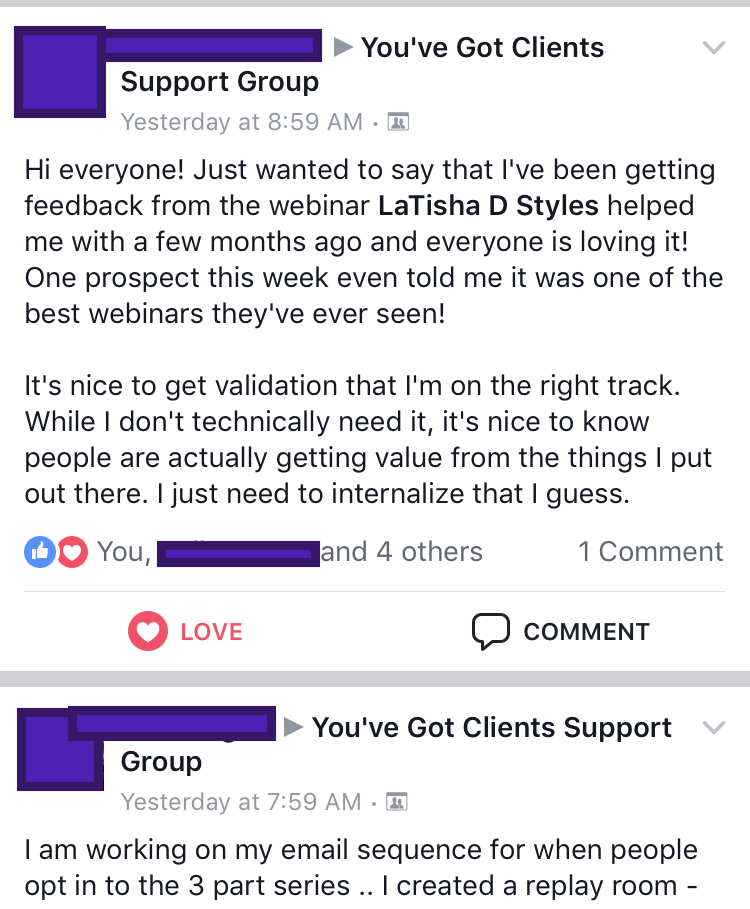
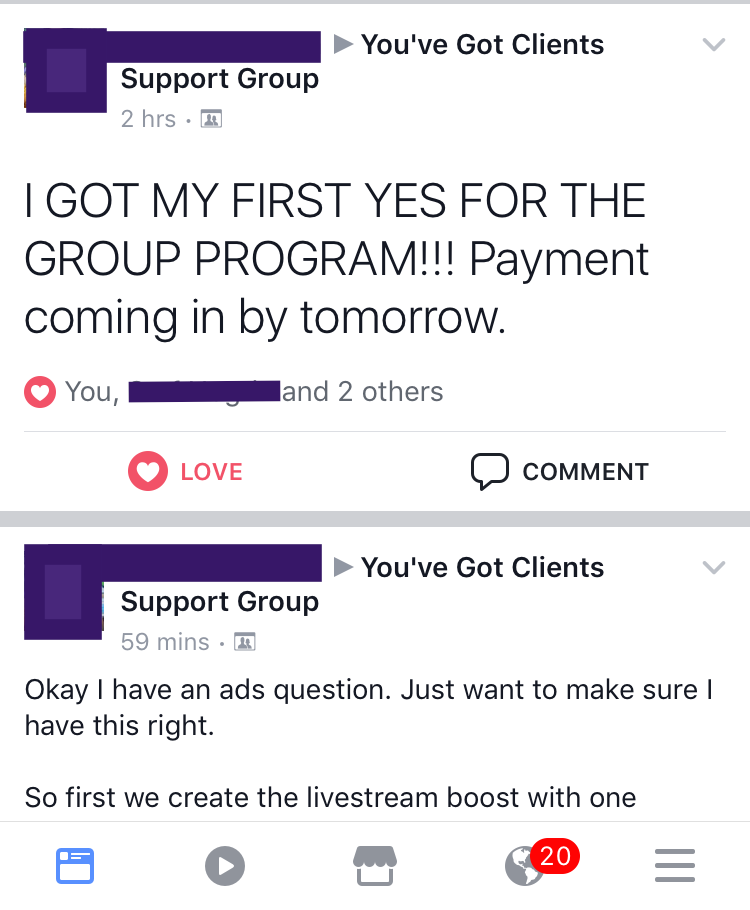
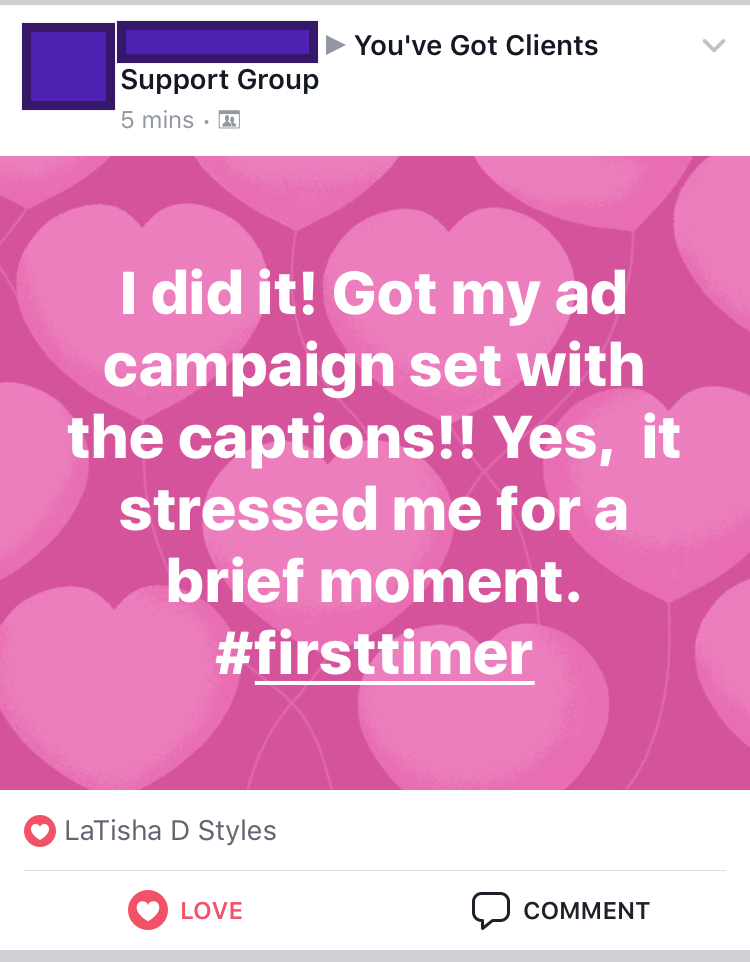
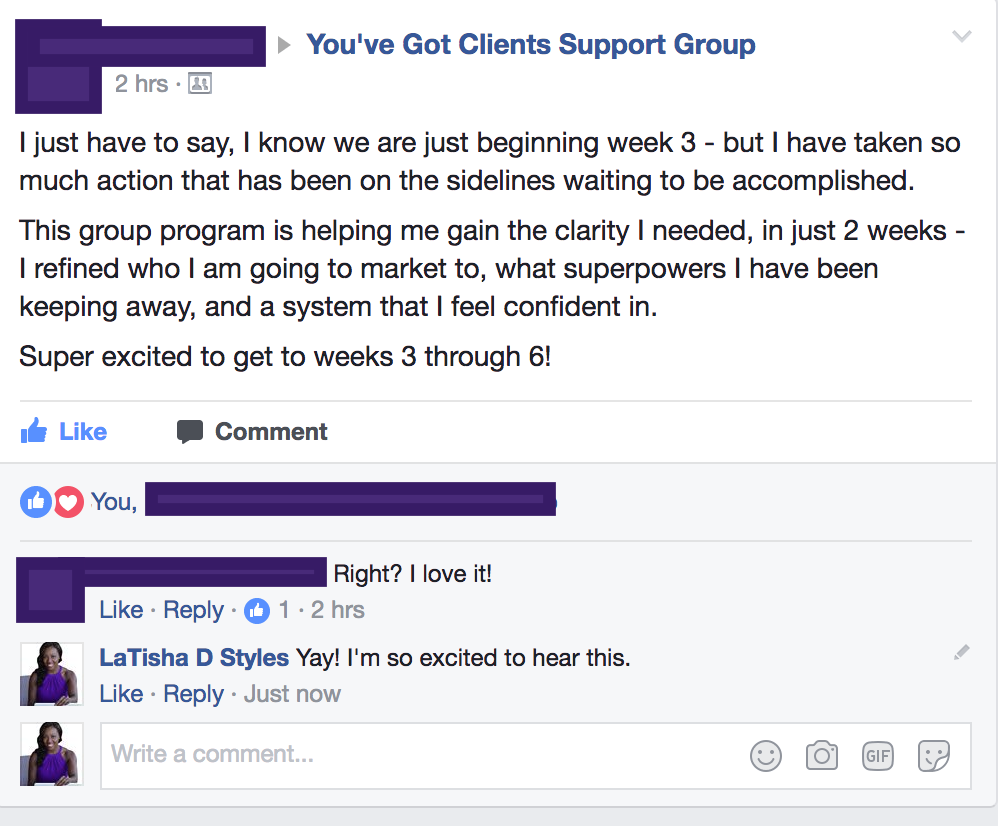
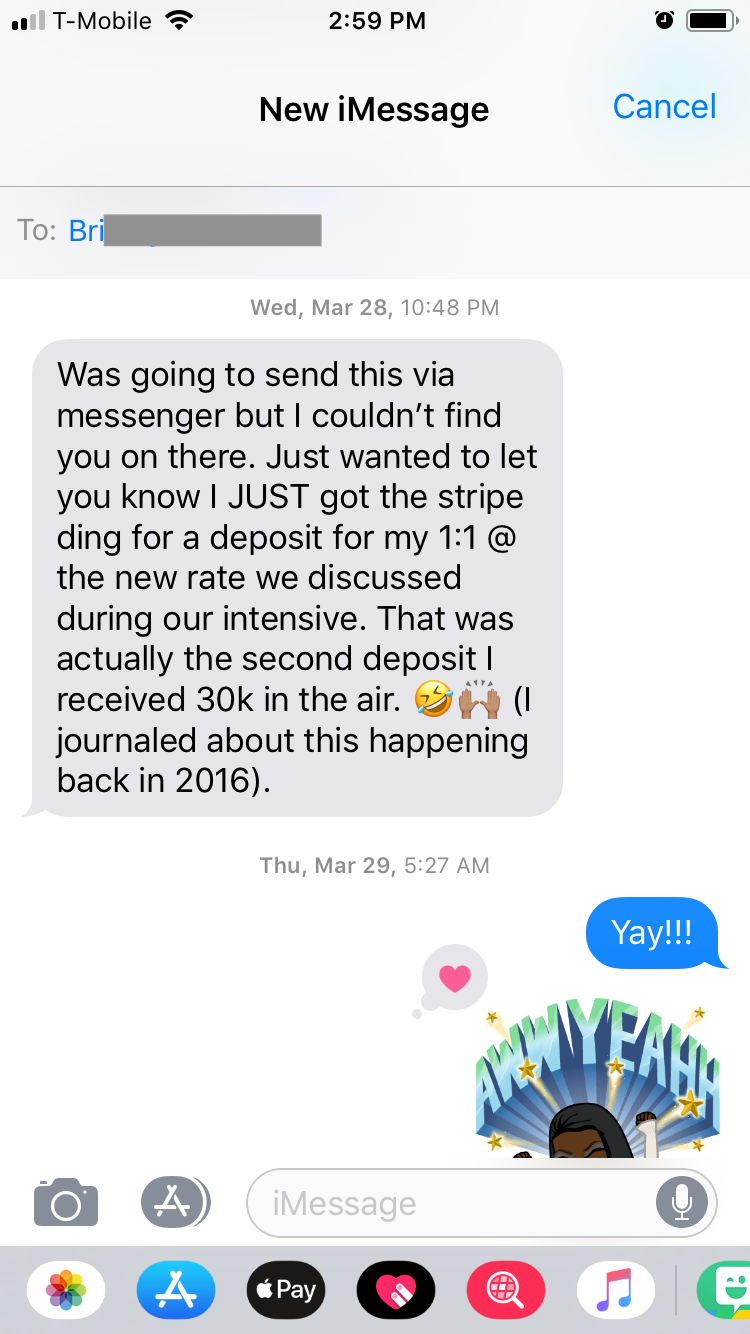
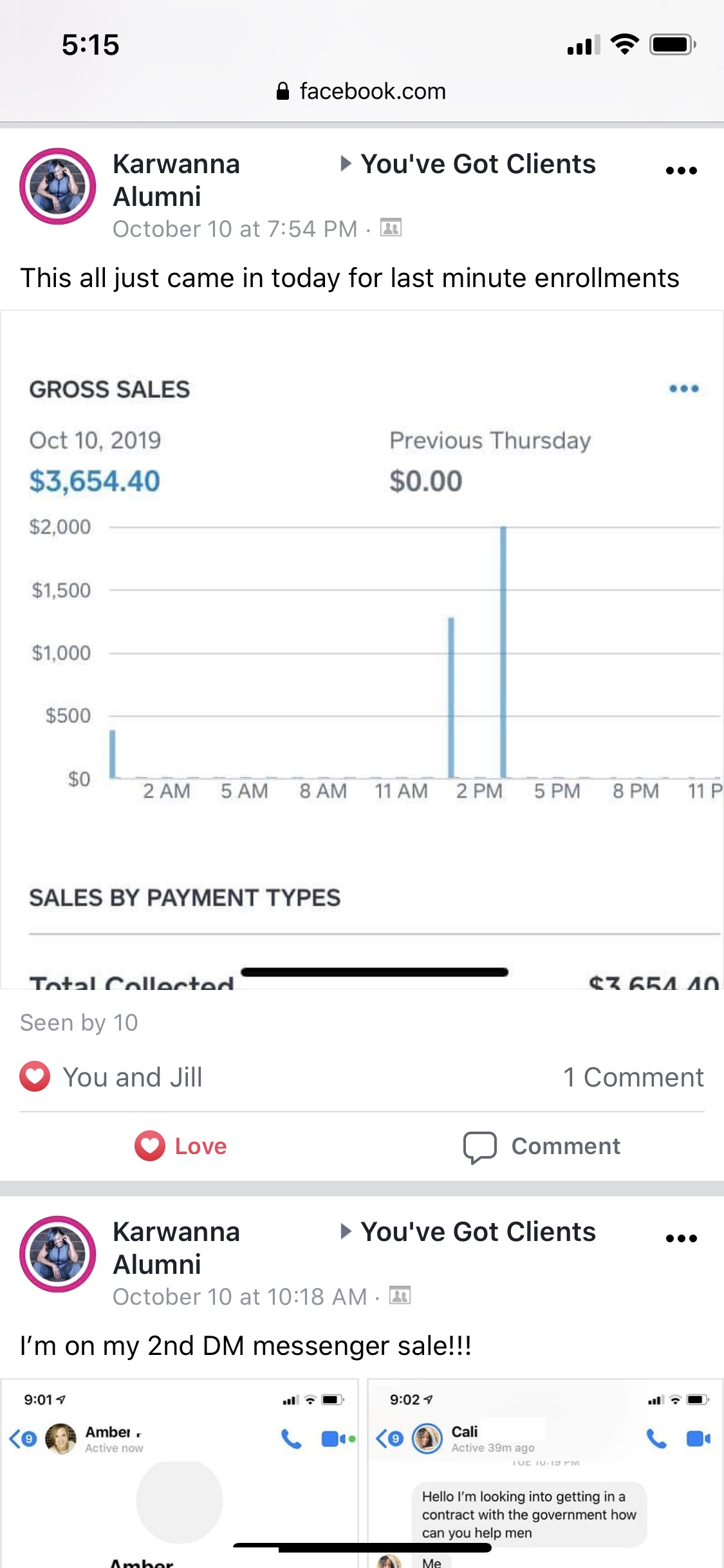
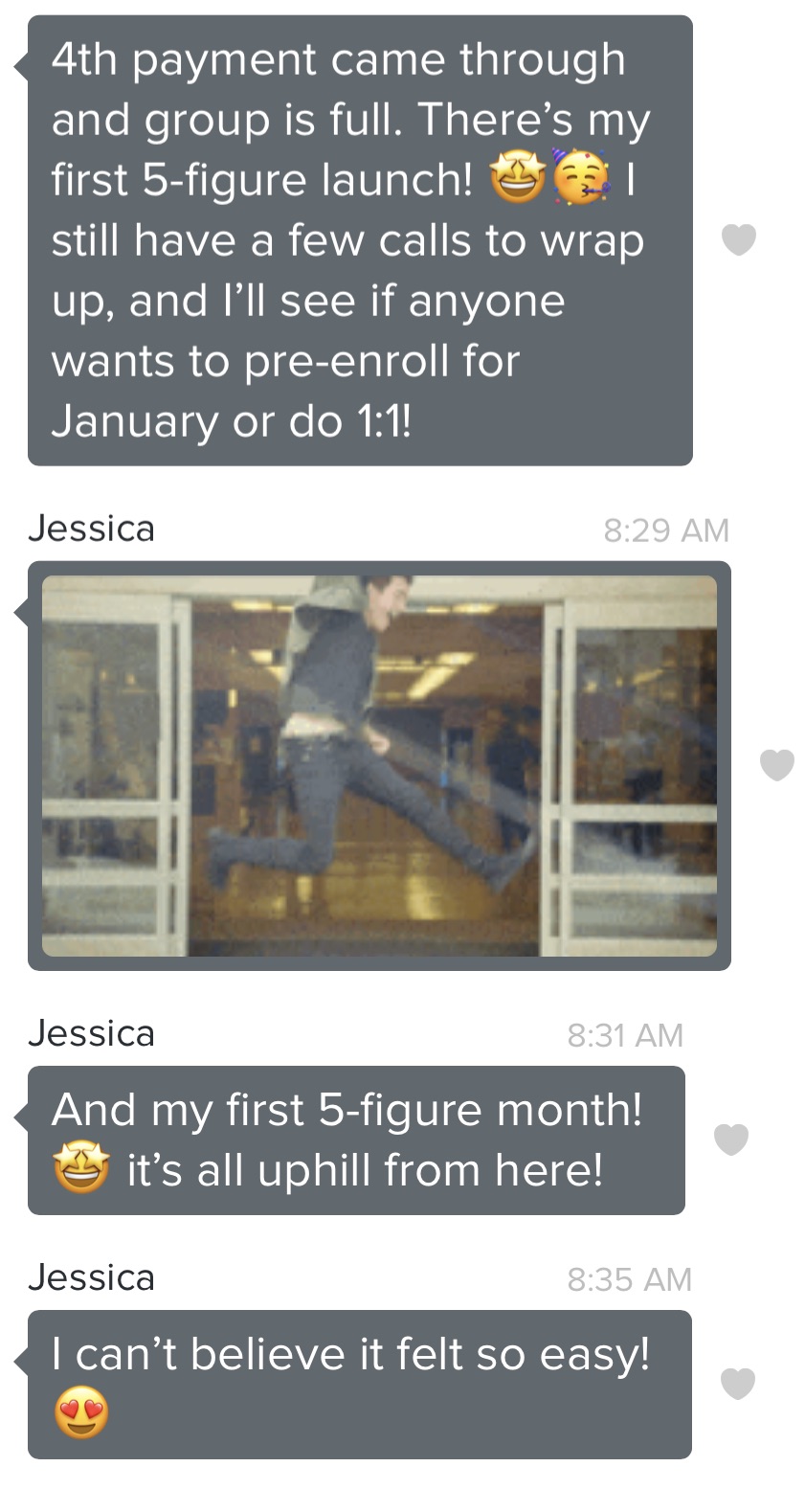
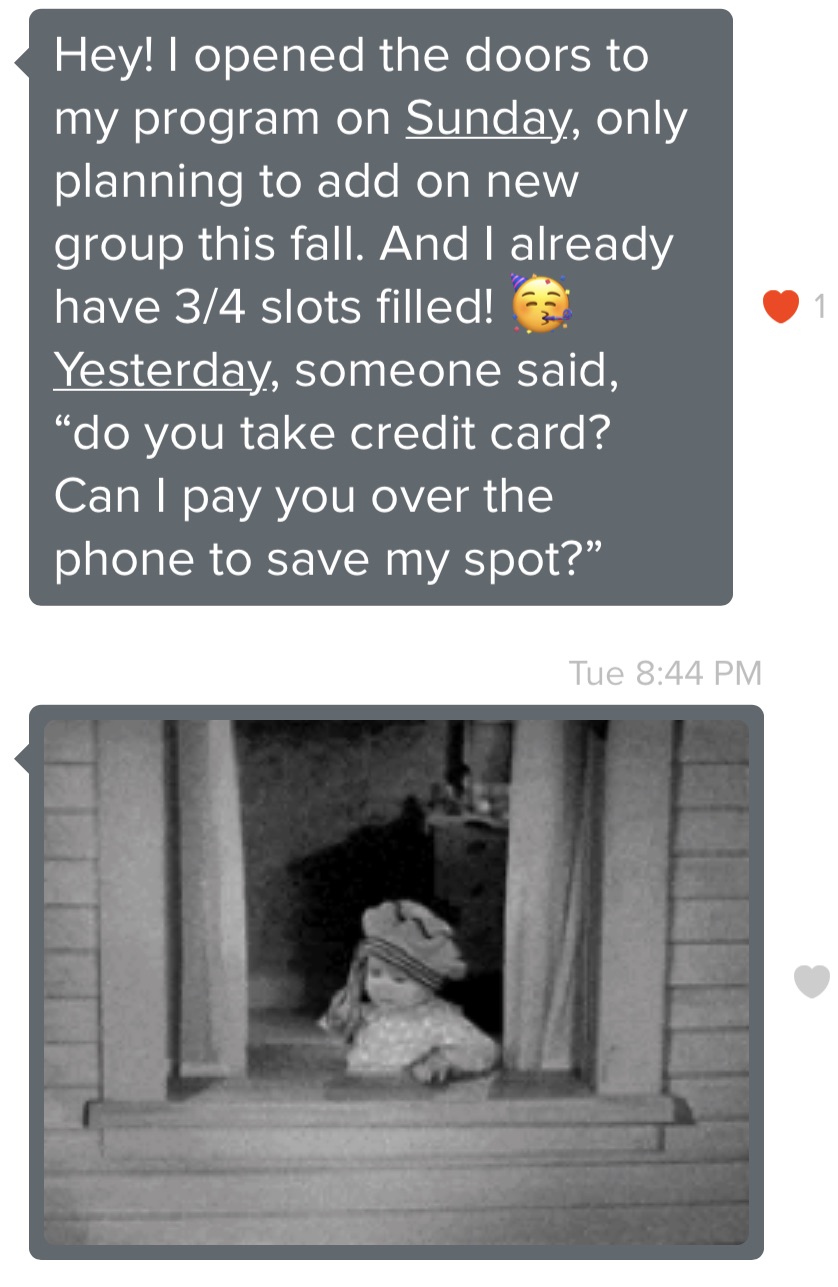

You've Got Clients® - Client Gaining Marketing System | Privacy Policy | Terms & Conditions
You've Got Clients® is a registered trademark of Financial Success Media, LLC. All rights Reserved.